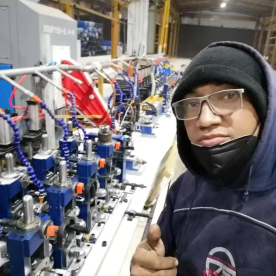[Precision Impedor for Circuits]Unlocking the Power of Circuits with Precision Impedors: A Comprehensive Guide

Unlocking the Power of Circuits with Precision Impedors: A Comprehensive Guide

Unlocking the Power of Circuits with Precision Impedors: A Comprehensive Guide
Circuits are the backbone of modern technology, enabling the seamless flow of electricity to power countless devices we rely on every day. However, to ensure optimal performance and efficiency, precision components such as impedors play a crucial role in controlling the flow of current within a circuit.

Unlocking the Power of Circuits with Precision Impedors: A Comprehensive Guide
What exactly is a precision impedor, and how does it impact the functionality of a circuit? A precision impedor is a specialized electronic component that is used to regulate the flow of electrical current in a circuit. It is designed to offer precise impedance levels, which helps to control the voltage and current within the circuit, thereby ensuring stable and reliable operation.
One of the key functions of a precision impedor is to limit the amount of current that flows through a circuit. By setting specific impedance levels, the impedor can help protect sensitive components within the circuit from damage due to overvoltage or overcurrent conditions. This is essential in preventing costly repairs and ensuring the longevity of the electronic devices.
In addition to current limiting, precision impedors also help to improve the overall efficiency of a circuit. By providing a consistent and stable impedance, impedors can help reduce power losses and improve the performance of the circuit. This is especially important in high-frequency applications where even slight variations in impedance can have a significant impact on the overall functionality of the circuit.
The key to unlocking the full potential of a circuit lies in selecting the right precision impedor for the specific application. There are various types of precision impedors available in the market, each designed to meet the unique requirements of different circuits. Some common types of precision impedors include resistors, capacitors, and inductors, each with its own set of characteristics and benefits.
When choosing a precision impedor for a circuit, it is important to consider factors such as impedance value, tolerance, and frequency range. The impedance value of the impedor should match the requirements of the circuit to ensure proper operation. The tolerance of the impedor determines the level of accuracy in maintaining the impedance value, while the frequency range specifies the range of frequencies that the impedor can effectively control.
In recent years, advancements in technology have led to the development of precision impedors with even greater levels of accuracy and performance. One such example is the Precision Impedor series from a leading electronic components manufacturer. These precision impedors are specifically designed to offer unparalleled precision and reliability, making them ideal for a wide range of high-performance applications.
The Precision Impedor series features a wide range of impedors with precise impedance values, low tolerances, and wide frequency ranges. Whether it is for current limiting, voltage regulation, or impedance matching, these precision impedors are capable of meeting the stringent requirements of modern circuits. With their superior performance and reliability, the Precision Impedor series has become the go-to choice for engineers and designers looking to optimize the functionality of their circuits.
In conclusion, precision impedors play a critical role in the performance and efficiency of circuits. By accurately controlling impedance levels, precision impedors help to protect sensitive components, improve efficiency, and enhance the overall functionality of electronic devices. With advancements in technology leading to the development of precision impedors with superior accuracy and performance, engineers can now unlock the full potential of their circuits and create innovative solutions for the future.Industrial Cold Cutting Saw Machine
